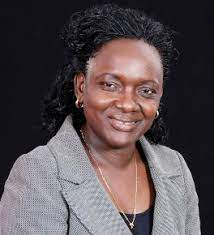Linking East and West African farming systems experience into a BELT of sustainable intensification through EWA- BELT Project

of Science and Technology,
Principal Investigator, EWA- BELT
The European Union’s Horizon 2020 Research and Innovation Programme is funding a project that will link East and West African farming systems experience into a BELT of sustainaable Intensification. This project is led in Kenya by University of Nairobi’s Prof. Sheila Okoth and KALRO (Kenya Agricultural & Livestock Research Organization).
EWA-BELT projects aims to develop Sustainable Intensification (SI) of agriculture productions in organic, agro forestry, mixed crop and livestock farming systems in 38 study areas in 6 countries from the East (Ethiopia, Kenya and Tanzania) and West (Burkina Faso, Ghana, Sierra Leone) of Africa. Research activities carried out in Farmer Field Research Units (FFRU) will address areas such as marginalized or abandoned lands and existing agricultural lands to increase their yield potential.
The research activities include assessing the performance of nutritious and economically viable neglected and underutilized traditional crops (NUS), evaluating the performance of groundnut varieties, evaluating the performance of farmer preferred finger millet & sorghum varieties in order to promote pre- and post- harvest technologies that minimize mycotoxin contamination in food and feed and the development of soil fertility improvement technologies for increased food production and income generation.
Integrated participative research innovative tools (FFRU, ICT, Integrated Pest Disease Management and identification and dissemination of best practices from the participating countries will be linked into an interregional East-West African BELT able to reinforce Sustainable Intensification in agriculture. Farmers will be introduced to highly innovative, cost-affordable technologies that can easily be used in the field by unskilled personnel.
Some of the cost-affordable technologies that will be promoted are as follows: use of organic manure (poultry manure), inorganic fertilizers and the rotation of cereals with legumes to promote sustainable soil management, use of Aflasafe KE01 as a pre-harvest biocontrol for aflatoxins in the NUS & Maize and Post-harvest technologies to control mycotoxin contamination in the harvested NUS such as effective solar drying systems and innovative storage bags
This project will go a long in improving food security & nutrition, maintaining sustainable production and consumption patterns and improving soil and water-related ecosystem services. It will also play its part by addressing gender issues in the sector through empowerment of women at every stage of the process.
The results will be disseminated during the Infopoverty World Conference at the UN Headquarters.
Click here to download the report
